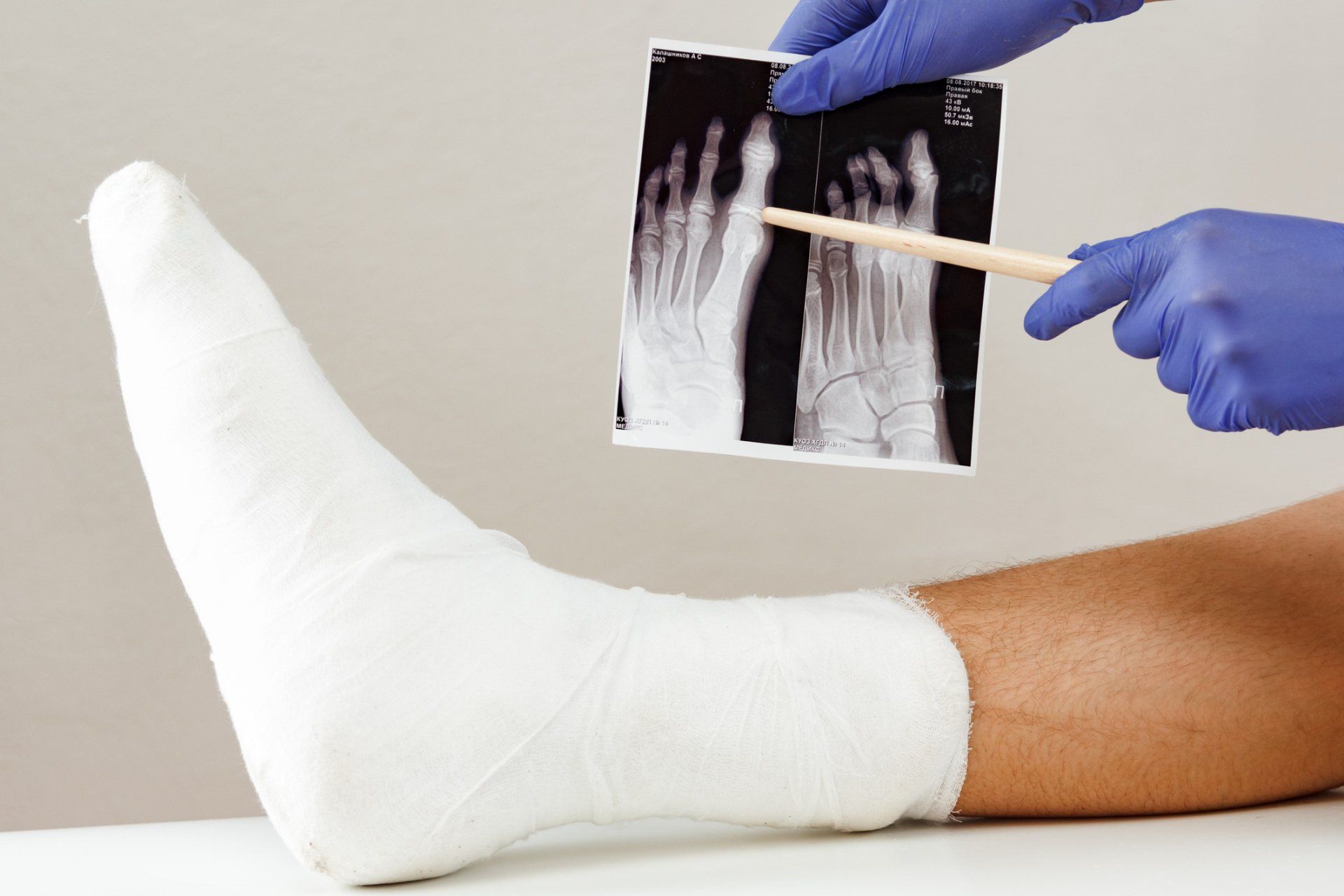5 Potential Dog Bite Injuries
- By websitebuilder@thryv.com
- •
- 11 Jun, 2018
- •

As the weather warms up and you spend more time outdoors, you have a greater chance of encountering other people's dogs. Unfortunately, each year, approximately 4.5 million of these encounters resulted in a dog bite, and about 20 percent of bites caused an injury.
Here is a list of some of the most common injuries you may receive because of a dog bite.
1. Punctures
When a canine's sharp teeth encounter your skin, they typically will exert a bite force, which can be hundreds of pounds of force per square inch (PSI). The PSI will vary based on the breed of dog. For example:
- Kangals exert up to 743 PSI
- Rottweilers exert up to 328 PSI
- Dobermans exert up to 245 PSI
- American pit bulls exert up to 235 PSI
Even small breeds of dogs have a PSI that can cause their teeth to puncture the area they come in contact with.
While puncture wounds do not usually bleed excessively, the wounds can be deep and have greater potential for infection. Dog bites can put you at potential risk of several different types of infections. These include:
- Pasteurellosis infections
- Staphylococcal infections
- Rabies
While these can be caused by all types of bites, puncture wounds deposit the infections deeper in your tissues.
2. Severe Tearing
When a dog bites down and exerts pressure and pulls back without releasing, its bite will cause tearing of the affected area. Tears can be severe injuries that have the potential to not only damage the visible flesh but also the muscles, tendons, and blood vessels underneath the skin.
3. Broken Bones or Crushing Injuries
Aside from causing tears and puncture wounds, the PSI of a dog's bite has the potential to break or crush bones in multiple places. These injuries can be quite serious and will take you time and therapy to recover from.
In addition to broken bones from bites, you may sustain fractures or broken bones as a result of the dog making you fall during your attack.
4. Scarring
Because of the injuries to your flesh, dog bites have the potential to cause lifelong scarring and or disfigurement. Depending on the severity of the injury, you may require skin grafts or other types of reconstructive surgery to repair or reduce the amount of damage. These types of scars could impact the quality of your life and make you feel embarrassed about your appearance.
5. Nerve Damage
Strong pressure and deep bites can damage the underlying nerves of the affected area. This type of damage comes in three forms. These include:
- Neurapraxia - a reduction or complete blockage of nerve conduction. This results in a temporary loss of sensations or function for a limited amount of time.
- Axonotmesis - an interruption of the nerve axons with preservation of the surrounding connective tissue. This damage comes from stretching a nerve, which in turn can result in temporary paralysis of the area.
- Neurotmesis - a form of damage to the nerve and nerve sheath that is usually permanent, although partial recovery is possible.
All three of these types of nerve damage can produce varying symptoms based on their severity and location of the injury.
As you can see, dog bites can cause severe injuries that take time and money to recover from. If you have been bitten by someone else's dog, you have the right to receive compensation for your injuries, as well as any resulting pain and suffering. Richard D. Hoffman Law Offices can help you do just that. Give us a call today so that we can review you case and put you on the path to recovery.

If you live in the city and the times of day you drive coincide with the times of day many others are also on the road, then you're going to be on the road during rush hour.
Automobile accident fatalities are significantly higher during evening rush hour traffic. If you have obligations that cause you to be on the road during rush hour traffic, then you should take some of the advice offered below to help decrease your chance of being involved in an accident.

If you think serious personal injuries only happen on the road or in dangerous places like amusement parks, think again. Many personal injuries occur at the places people often visit — for instance, at your local grocery store.
If you haven't considered the hidden dangers that can lurk in a grocery store, keep reading. We overview some of the most common personal injuries that occur in grocery stores and explain when and why you can hold the store responsible for your accident.







